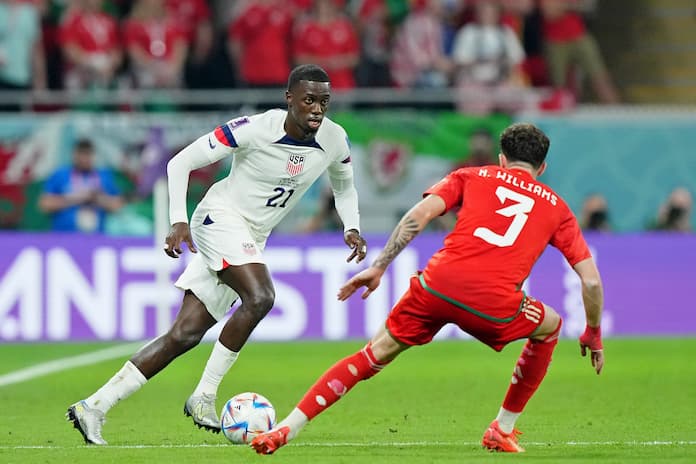For those who participated in the inaugural World Cup in Uruguay, the actual travel involved in getting to and playing in that first tournament might have been a pain compared to how easy it is to get from point A to point B now, but there was at least one easy part on the way. Instead of playing their way in, all it took was a simple RSVP to the invitations that FIFA extended to its members for the 13 teams who took part.
Fast-forward eight decades, and with the exception of host country South Africa, every country who will be a part of the festivities come June will have booked their tickets to the show through various qualifying tournaments.
Some of the favorites, like Spain and England, made easy work of qualifying, with their campaigns only serving to bolster their credentials as sides who could lift the coveted trophy on 11 July.
Other favorites, like Brazil, Argentina, and 2006 World Cup runners-up France, had their share of bumps on the way but still managed to secure their place in the tournament. Even reigning World Cup champions Italy, despite what their record may indicate, had their issues during qualifying as well.
World Cup qualifying also had its share of surprises, from upstarts Slovenia, North Korea, and Algeria playing their way into World Cup berths, to highly ranked and highly touted sides like Russia and Egypt not being able to get the job done.
To flash back to World Cup qualifying and take a look at how every team in the field, we’ve done a group-by-group rundown of each team’s road to South Africa.
Click on the group names to find out how each group’s quartet of participants earned their place in the field of 32.
Group A
South Africa may have automatically qualified for the World Cup, but did that stop them from participating in qualifying? There was a good reason for it.
France certainly could have benefited from an automatic qualification, because that would have meant not having to deal with certain controversies.
France did things the hard way, and so did Mexico and Uruguay, but all three came through when it mattered the most to claim expected places in the finals.
Group B
Another side who can attest to the previous sentence is Argentina, who looked anything but a World Cup favorite on more than a few occasions during qualifying but got their act together in time enough to avoid what would have been a failure of epic proportions.
They and Greece both left it late, but on the other hand, qualifying was a breeze for both Nigeria and South Korea, who qualified with room to breathe and time to spare.
Group C
England needed to have a strong World Cup qualifying campaign to be taken seriously as a top contender in South Africa, and the Three Lions certainly delivered.
The United States qualified without few real bumps along the way, as expected, but that was the easy part. Their opener against England might be the one that they’re circling on the calendar, but the U.S. should be well aware that the matches that matter the most are the second and third, not the first, especially after Algeria and Slovenia knocked off top teams to qualify for the tournament.
Group D
Germany, like England, strolled through qualifying for the most part, but it might be surprising who managed to give them the toughest time in what was otherwise a cakewalk.
It might not be much of a surprise that Germany, Australia, and Ghana all made easy work of qualifying, but Serbia made their case to be considered a real threat in South Africa by doing much the same themselves.
Group E
The Netherlands were one of only two sides who went through World Cup qualifying without dropping a single point (we’ll get to the other one below).
It would be safe to assume that their three Group E matches will be tougher than their eight qualifying matches combined. Denmark and Cameroon may not have been perfect, but they were extremely impressive in qualifying as well.
Group F
World Cup champions Italy were unbeaten during qualifying, but their run was far from flawless.
If Italy had trouble putting away the likes of Cyprus, they could have some real trouble against Paraguay and Slovakia, whose records weren’t as sparkling as Italy’s but were, on the whole, far more impressive.
Group G
The last thing Brazil needed after an underwhelming showing at the 2006 World Cup was an underwhelming qualifying campaign, but that was exactly what happened, until the light came on and Brazil started being the Brazil.
It took a while for the light to come on for Portugal as well, and if motivation and inspiration are issues in the World Cup, it could mean disaster against the Ivory Coast, who hopefully didn’t leave their scoring boots behind in qualifying, and North Korea, who will bring a stout defense to the tournament.
Group H
Group H is without a doubt Spain’s to lose, and speaking of losing, that’s something Spain didn’t do in qualifying.
It’s not often that you’ll see a team lose at home to Luxembourg and reach the World Cup, but that’s the case for Switzerland, whose embarrassing defeat might have done far more good than harm.
Chile and Honduras don’t have the same level of international experience that Spain and Switzerland do, but neither can be taken lightly after some impressive results.
Add Sportslens to your Google News Feed!






